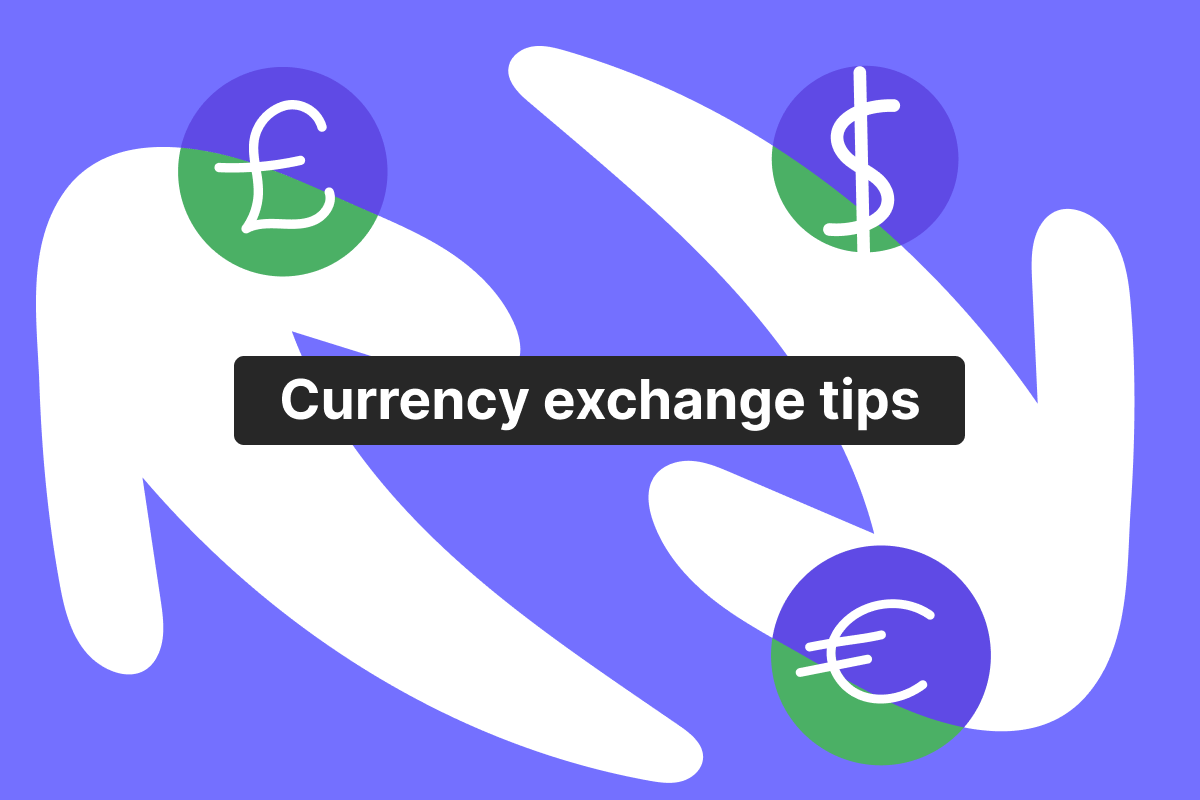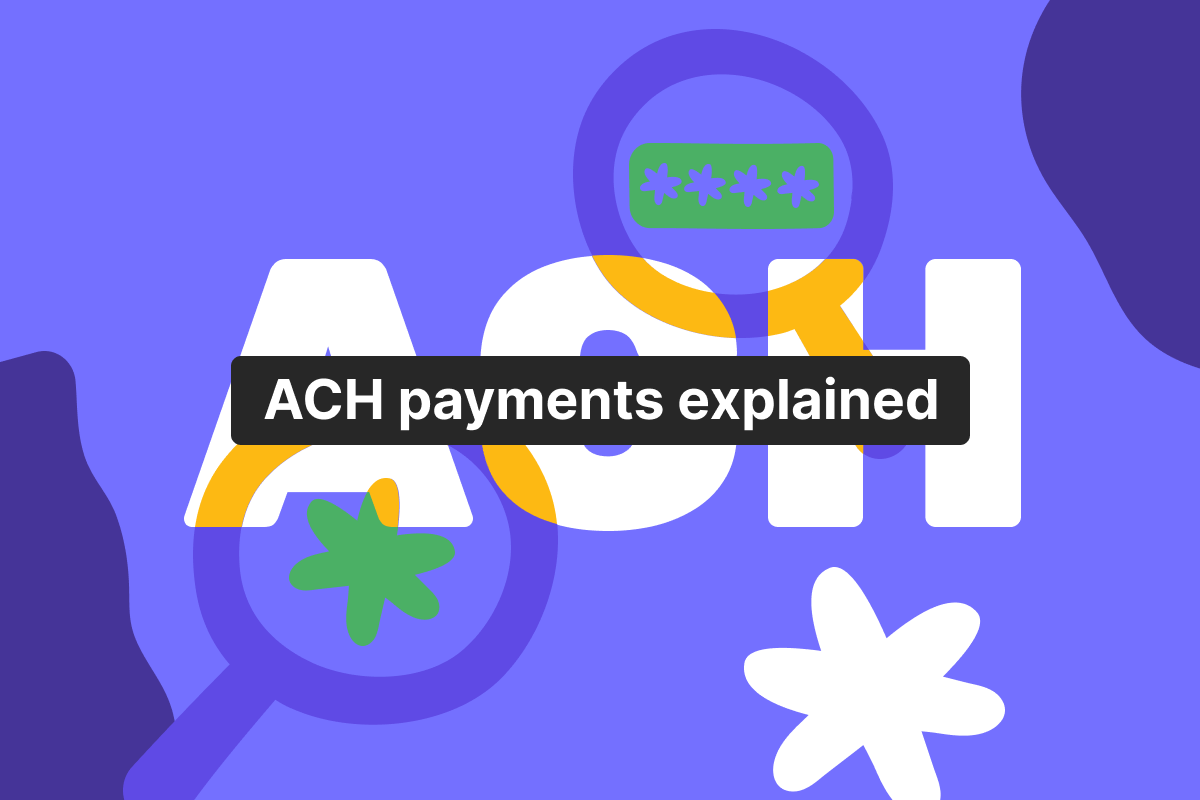Genome Blog / articles / Where to exchange currency: best options and tips for 2024
Sep. 24, 2024
A bank account with a debit card is not the be-all and end-all of financial services, as multiple features make up a complete financial experience. One such service is the exchange of currencies, as people might require it for many reasons.
Find out how this service works, the best options to exchange currencies, and what problems you can face when doing so.
What is a currency exchange?
Currency exchange is a process that occurs when one currency is converted into another. It can happen with physical cash or online. A person or a legal entity can initiate the exchange process of a local currency for a foreign one for many reasons, from international travel to trade and investments.
One important factor to consider when discussing currency exchange is exchange rates. An exchange rate is a value at which you can exchange one currency for another.
A good exchange rate is determined by the value you get from the exchange.
For example, let’s say that you can exchange 1 US dollar for 0,90 EUR in one of the exchange bureaus. At the same time, you buy currency online, and the exchange rate there is 0,65 EUR for 1 US dollar. In the first case, you get a greater value during the exchange, and an exchange rate of 0,90 EUR to 1 US dollar is a good one compared to your second option.
It is crucial to determine and compare the rates before performing the currency exchange. If the rate is not beneficial, you risk losing funds on the exchange rate, which is necessary for your day-to-day or corporate expenses.
How exchange fees and charges work
Various transaction fees and other charges are associated with currency exchange. Let’s review the most common ones.
1. Spread and commission fees. A spread fee can be explained with an easy example: a payment service provider buys 1 Polish zloty for 0,20 GBP. Then, it sells it for the price of 0,30 GBP. So, the spread is 0,10 GBP, which is the difference between a currency’s buy and sell rate. Banks use the spread to earn on the exchange.
Meanwhile, commission fees are additional charges some financial institutions have for their services. It is typically a flat fee or a percentage of the transaction amount.
2. ATM withdrawal fees. These charges apply to situations when you withdraw funds in another currency (foreign currency). For instance, when you travel to another country. Also, your financial provider can charge you foreign transaction fees, so consider the percentage before exchanging.
Consider the cash advance fee if you use a credit card, as your bank can charge it when you withdraw foreign currency.
When you plan an overseas trip, check the foreign currency exchange rates for your local currency to find the best options and avoid high fees. Additionally, look specifically for international ATMs that work under your bank’s network and service your credit card or debit card when you need to exchange foreign currency.
3. Service charges. In addition to the charges listed, some financial providers and currency exchange services can have additional fees for some of the services. For instance, a flat fee, a minimum charge, or based on the amount of currency you exchange.
These can be pretty high fees, so check these additional charges before partnering with a financial provider or opening a current account.
4. Hidden fees. Unfortunately, not all exchange bureaus provide a detailed explanation of which charges from their pricing list can apply to the exchange. Here are the fees to look out for:
- Dynamic currency conversion. Merchants may offer to charge your local currency abroad, but it often comes with a poor exchange rate for the foreign currency and extra fees.
- Bank markups on exchange rates. Banks and credit card companies may add a 3% markup on the exchange rate, which can act as a hidden fee in addition to foreign transaction fees.
- Inactive account fees for Forex traders. Forex platforms may charge inactivity fees if no trades are made within a specified time.
Top places to exchange foreign currency
Currency exchange is a very necessary service in the financial world, so no wonder you can get it almost anywhere. But what is the best place to exchange funds? Here are the most common places to do just that:
Banks and credit unions
The most obvious choice that comes to mind. After all, currency exchange is one of the basic features of financial institutions. Banks handle money on a regular basis and have licenses and permissions to do so. Thus, exchanging money there is safe.
The advantage of banks as an option is reliability – you will get authentic currency if we talk about cash. Also, a high level of security because of strict regulation rules. And, of course, banks and credit unions usually have the widest variety of currencies available.
However, there are cons, too: banks and credit unions are big financial institutions, so if you need to go in person, it may be somewhat frustrating because there are other clients with their own needs. The fee and currency rate may not be the best on the market – it is not a primary business for them.
Currency exchange bureaus
If you ask the question, “Where is the best place to exchange currency for personal needs?” an exchange bureau (aka Bureau de Change) can be one of the most prominent options, which are usually scattered around the country – near a bank, the market, or even at a post office.
On the other hand, the bureaus usually have stricter limits on the amount of cash they allow to exchange. So, if you are going to operate with big numbers or own a business, a bank may be preferable.
Airports
Airports are a high-traffic area, which makes exchanging currencies very accessible and convenient.
However, the exchange rate at the airport kiosk may not be as good. That’s because people usually exchange funds in the airport out of a sense of emergency. For instance, they might need money for transportation. Unfortunately, some airports take full advantage of that and offer very unfavorable rates. Thus, if you absolutely have to exchange funds at the airport kiosk, do so with small sums.
Hotels
Hotels are pretty similar to airports when it comes to exchanging currencies. They are convenient but may also have higher fees.
If you want to use this service at a hotel, do your research beforehand: find out the rates and compare them to other local options.
Online currency exchange services
Online exchange services offer competitive rates by avoiding the overhead costs of physical locations. And, of course, there’s a convenience factor – you can request an exchange at any time when you order currency online!
Still, there are downsides. For instance, the home delivery fees (aka delivery charges) can reduce the savings from better rates. Additionally, online transactions come with potential security risks, making it crucial to choose trustworthy platforms.
Best online currency exchange services
Multiple online exchange services currently operate around the world, but only the best possess all of these features at once:
- Competitive exchange rates;
- Transparent fees;
- Fast transaction times;
- Enhanced security;
- A broad range of currencies;
- Global availability.
However, you can also go the other route and use Genome’s multi-currency accounts! You can start multiple accounts in euros, US Dollars, and British pounds to hold and make payments in the set currencies. You will also be able to exchange these currencies transparently. You can check how much the exchange rate will be directly on our website.
Complete your perfect traveling experience with Genome’s debit card. You can have both physical and virtual Visa debit cards and use them for your trips or other expenses. And if you open a business account, you can issue the first 100 debit cards for just 1 EUR per card. Use these debit cards for corporate expenses, business trips, or media buying, as they are linked with our multi-currency accounts.
Additionally, we provide a broad range of services for individuals and businesses – see for yourself.
How to get the best exchange rates
One of the most reliable ways to do it is to read the conditions. Fees and rates for this service are usually public information that all reliable companies must provide to potential clients. If it is not a thing, that is a big sign of a no-go for this particular bureau or financial institution.
Here are some other tips to follow:
Comparing rates from different providers
If you don’t know which service to choose, – start with a comparison. Banks, exchange bureaus, and online services offer different rates, and “shopping around” for an exchange provider can reveal significant differences. Pay attention not only to the rates but also to the exchange limit, as there is a chance you can face a financial bottleneck. Even a small difference in exchange rates can add up when converting larger amounts.
Avoiding airport and hotel exchanges
These options are not as good as those we listed in the article – you can be overcharged. An airport kiosk or a hotel exchange office can have worse exchange rates and high fees. They rely on travelers urgently needing foreign currency, often charging steep markups. If possible, plan and exchange money before your trip at a bank, a post office, or through an online service.
Using currency converter apps
Such apps allow you to keep track of live exchange rates and see how much you’re being charged compared to the mid-market rate (the rate used by banks to trade with each other). These apps are useful for checking real-time rates and help you avoid getting overcharged.
Monitoring currency trends
This tip will benefit those who make large transactions or travel frequently. Monitoring currency trends can help you come across the best deals and offers. Currency values fluctuate based on economic and political events. By keeping an eye on these factors, you can potentially exchange your money when the rate is most favorable.
Booking rates in advance
Some online exchange platforms or banks allow you to book exchange rates in advance, according to your preference. It may protect your funding from market volatility by locking the preferable buy or sell rate. It is especially useful if the currency you need is very unstable and you’re worried about a sudden drop in value.
What to avoid when exchanging currency
Planning an overseas trip or trading can sometimes be messy and distract you from the possible pitfalls of exchanging currencies.
Exchanging at airports or hotels
Planning is one of your best friends when it comes to financial operations. When you don’t, you have to act fast, and some businesses can take advantage of that.
For instance, airports and hotels can have poor exchange rates, as they count on you to be in a hurry or not have many options for foreign currency exchange.
Not comparing rates
Always do your research. After all, if you don’t compare exchange rates, you can lose money that would otherwise be spent on your personal or corporate needs.
Rates vary significantly between providers, so always check them to avoid poor exchange rates.
Exchanging large amounts at once
Sometimes, you need to exchange a lot of money at once. However, this might cost you if the rates are poor. Thus, if possible, consider exchanging smaller amounts or waiting for better rates.
Also, it is better to use a financial institution you trust, not the exchange services of hotels or airports, where you will have to pay extra.
Using a credit or debit card without checking fees
Yes, using a credit or debit card is very fast and convenient. However, these factors might distract you from the important things – like checking how much you will have to pay for the exchange. Check the fee structure of your debit or credit card before using it abroad to avoid surprise costs.
Other tips for safe and secure currency exchange
One of the best ways to manage currency exchange is online converters. After all, you won’t waste time calculating those yourself and will have access to multiple currencies to compare.
Conclusion
By combining these tips – comparing providers, avoiding costly exchange spots, utilizing modern technology, and monitoring trends – you can secure yourself from being overcharged, and potentially, you can find the best place to exchange money.
FAQs
Is it better to exchange currency at home or abroad?
When it comes to the “where to exchange currency” question, it depends on your destination and how much money you need. You might exchange currency at home for convenience. However, the rates for a foreign currency abroad may be far better. Thus, you should always compare the country’s currency rates to those at home before your trip to choose the best option.
Can I exchange currency online?
Yes, you can exchange your country’s currency for another one or order foreign currency online, as many financial providers offer such a feature.
Do banks exchange foreign currency?
Yes, many banks allow the exchange of foreign currencies. Before exchanging those, compare the rates different banks provide and if there are any hidden fees.
What are the hidden fees in currency exchange?
Hidden fees associated with your country’s currency exchange include service fees, commissions, poor exchange rates, and ATM withdrawal charges. We explained some of the hidden fees, such as dynamic currency conversion, bank markups on exchange rates, home delivery fees and other delivery charges, and inactive account fees for Forex traders above.
Are online currency exchange services reliable?
You cannot generalize reliability when it comes to such a big industry. Before working with any online currency exchange service, make sure that it is licensed and complies with relevant financial regulations.





